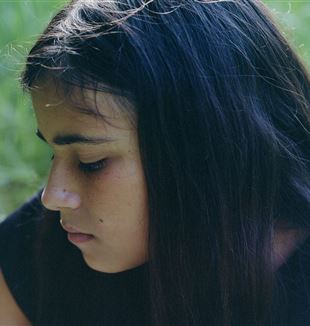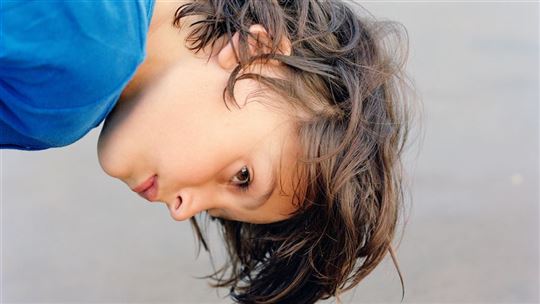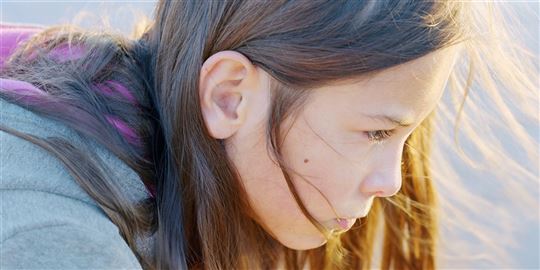
Education. All within a gaze
The crisis of an entire generation. The fear of adults. And the path to a “total” and “living” educational relationship. From the September issue of Tracce, notes from a dialogue with Franco Nembrini and Matteo Severgnini.FRANCO NEMBRINI: Years ago I hosted a boy with psychological difficulties, to whom God had given the gift of an extraordinary ability to intuit the nature of things. One night at dinner, he said to me, “Franco, do you know what a sweater is?” I said, “Yes, it is a garment you put on when you are cold.” “You do not understand anything,” he retorted, ”A sweater is the garment that children have to put on when their mothers are cold.” Then he continued, “Do you know what Gioventù Studentesca is? It is the place where young people have to go when their mothers are afraid.” I asked him, “And what would mothers be so afraid of?” He replied, “Mothers love us, that's why they do not want us to hurt or be hurt. But they are afraid of harm. And to avoid it, they take away our freedom. They do not understand that this is how they kill us.” All my reflections over 40 years as a teacher on the risk of education found an inevitable point of verification in this 16-year-old's statement. I wanted to understand what he meant.
There is a state of mind in today's adolescents that I register as new. Until ten years ago, I didn't hear from 13- or 14-year-olds, “Dear Franco, you speak well, you are right, but if it is to end up becoming like my father (or mother), I prefer doing drugs.” The first characteristic of this adult generation seems to be fear. But fear is the great enemy of education because it blocks everything, it does not make people try, it does not make them value freedom, it does not allow correction. So – if we want to talk about education – we have to deal with it. Because fear is what we communicate to our young people.
Among the many letters that, fortunately, I continually receive, let me read this one from a girl: “Hello Franco, I am writing to you because I esteem you. You are an educator and I hope you can do something. I am 18 years old and it hurts me to think that my generation is slowly going to destroy itself.” I have never seen a generation suffer like that. And the pandemic has exacerbated this fragility, which I want to try to identify. She continues: “A friend of mine, a few years ago, decided to end her life with a rope and a chandelier. Two of my classmates attempted suicide. I noticed cuts on the wrist of one of my classmates... And I could go on.” Can you imagine a 14, 16, 18-year-old whose context is marked by this self-destruction? She asks, “What do I do in front of this? Who am I in front of my peers who are convinced that they have no value?” 
This is the definition I want to point out: they are convinced that they have no value. The terrible suffering I perceive stems from the perception that they have no value. But you do not give yourself value in life. Someone who looks at you with a gaze of mercy gives it to you. That is the right word, the inevitable word. A gaze of mercy. Someone who looks at you and you understand that they would give their life for you, without first asking you for something in return, without first asking you to change.
Young people are tormented by performance anxiety. They are never good enough for anyone. They struggle to meet people who tell them “you are worth it.” But this is the Christian proclamation: God came down to earth to tell men that the more they are full of limitations, sinners, sick, poor…the more they deserve Christ's sacrifice. This introduced Christianity. This has built our civilization for 2,000 years. This, in my personal experience, is Fr. Giussani's charism.
My answer to the question you asked me – “What responsibility does an educator who lives the charism have?” – is this: the responsibility of living the charism! Period. There is no other answer. If there were any need to add anything else, it would mean that Fr. Giussani's is not an educational charism. Instead, he himself always said that CL is “a movement of faith education,” not a movement of “activities.” Dealing with education is to have a passion for the truth of the person, for the truth and mercy that Christ brings into history, whatever job one does.
Today this seems to me to be the crucial issue: it is difficult to find adults. The crisis of these young people – including our children – is that they are not affirmed in their worth. “You are worth” becomes, “You would be worth it if...,” and everyone sets their own condition. Let me go back to that girl’s letter, “Young people have always had adolescent problems, but my generation has something more that is not nice, which no one understands. I too have a thousand things on my mind or a thousand paranoias, but at least I have someone who loves me and reminds me of my value. I realize that not everyone is as lucky as I am, maybe that's why they decide to end it all.” These young people are looking at suicide as one of the possible choices to get out of the drama that is life. She says, “If all young people had the adults I have in my life [I do not know who she is, but you can tell she has adults who look up to her], there would be fewer suicides. I am convinced of that. But adults have blindfolds on their eyes and plugs in their ears and they don't notice what's happening to us. They do not look at us. That hurts.”
We have all grown up with a certain courage and energy in life because someone has looked at us, not esteeming our appearance, but the truth of us, beyond our mistakes, our struggles and inconsistencies. Someone – for me Fr. Giussani – looked at us and said, “You are more than all the apparent evil.” To be looked at by someone who would give their life for you: love. The law of being is love. God is love because he gave his life for us before we deserved it. “God demonstrates his love for us in that while we were still sinners, Christ died for us” (Romans 5:8).
This is lacking today. It is missing because of the weaknesses, I think, of adults. We are weak in faith, because faith is the certainty of Christ's victory, and the certainty of Christ's victory gives a positive momentum that runs through all possible evil. Thinking that we can defend our children from evil, we end up protecting them from the world, that is, from reality, without being able to bet on their heart, on their desire for good, on their greatness. We end up doing the opposite of what the educator should do.
So what then is the task of the adult? I read from another letter that I received, “This morning I was having breakfast and like every morning my mother came in. Every morning, as soon as she comes in, she reproaches me: my grades, classes, school, backpack, I am late, I am going to miss the bus... This morning... she came in and smiled at me. My mother smiled at me. And you know what she said to me? ‘Mario, how nice it is that you are there, how happy I am.” For 17 years I have been waiting to be looked at like that.” That is the whole problem: this gaze, which I received from Giussani, which we have all received in some way, and which is the consistency of the adult.
MATTEO SEVERGNINI: I would say that hope is the principal virtue of the educational journey. Hope is what sustains the educational impetus that each of us lives and risks in every moment, sometimes doing the right thing and often the wrong thing. Hope arises in me, as a judgment, from a single phrase: what my heart deserves exists. And fortunately – for my son, for my daughter, for my student – I am not what the heart deserves. It is One who “became flesh.” Beauty became flesh; meaning became flesh; the Ideal of life became a companion precisely to announce this to us: what your heart deserves is there and there is a path to get there. I realized that what continually restores hope is this meaning that makes itself a companion on the journey by making my present certain with the gift of our communion because we do not walk alone.
This is a fundamental starting point for my life. If I am weak, it is He who is strong, and this is possible in faith, that is, in the consciousness of the encounter that invested my heart at age 16, when my principal – literally without knowing it – took me out of the darkness of meaninglessness. Or rather, from the darkness of myself. I cannot give light to myself, I need someone else. I was 16 years old, I had done something serious for which I should have been expelled, after my cousin had killed himself over drugs. That principal said to me, “Matteo, what your heart seeks exists. Why are you acting like it does not exist? What your heart deserves exists.” It was not a moralistic appeal, it was the highest moral appeal I had received in my life. He had allowed himself a loving invasion, which no one had ever dared before. No one had taken the responsibility to tell me, “Look, what your heart desires is there. Let's walk together.” Saying that implies a great responsibility: I walk with you in this promise that I do not keep, but I experience its influence so much that I want to share my path with you.
A great friend of mine, a middle school music teacher, made his third graders listen to Beethoven for their orientation. He then asked them to write a letter to Beethoven to tell him what they had learned from listening to him. A student, 13 years old, wrote three judgments. First, “Thank you, Beethoven, because you made me realize that limits do not exist. Limits exist only in my head.” But then time does not exist, which is the first limitation, and we eliminate the sacrifice and toil of growing and loving ... then tell Beethoven, who was deaf, that limits only exist in his head. Second, “I thank you, Beethoven, because you have made me realize that once I set a goal I must do away with everything and everyone who stands between me and my goal.” This indicates a powerful (not competent, powerful) culture that makes one violent. The third judgment, perhaps the toughest: “Thank you, Beethoven, because you have made me realize that in times of greatest difficulty I can always still count on one person. That person is myself.” She has studied no philosopher to get to such a clear and terrible judgment. She has absorbed the judgement of the world like a sponge, which teaches us that we are high-performing monads. This narcissistic individualism leaves us alone with our goals, most of which are unattainable. And that is scary: not so much that you do not achieve your goals, but that then you are alone.
This places an enormous responsibility on us, because an empty cultural proposal does not correspond to a void in our young people. They are already verifying another proposal, another culture, another hypothesis. The writer David Foster Wallace says that we usually live in a default mode because we are no longer used to worship, to contemplate. We no longer know what we can contemplate, and so we are constantly living in a default mode. And he summarizes what we saw in the girl in these words, “I am operating on the automatic, unconscious belief that I am the center of the world, and that my immediate needs and feelings are what should determine the world’s priorities.” Giussani already said it, quoting the great philosophers, “Man is the measure of all things.” It has never been so true as it is today, and this truth has never been so disavowed as it is today. It is a paradox in our society. Pope Francis echoed, “Children grow up as islands.” So do we, so do I: “Disconnected from others, incapable of a common vision, and accustomed to considering their own desires as absolute values.” So we no longer say ‘no’ to our children. We do not prepare them for “no” and when they encounter a “no” in reality, they become powerful, that is, violent. Capricious children. But this usually happens when their parents are. So society deconstructs, impoverishes and becomes weaker and more inhuman.
Let me continue to recount that episode. The music teacher took his students on a field trip. A mountain, a big climb, and that girl gave everything to reach the top. Halfway up, breathless, she could not take another step. The teacher sat her down on a boulder to catch her breath and, with the witty irony of someone who loves the meaning of things, looked at her and said, “Limits only exist in your head.” She looked at him, “Do not say anything, do not say anything ....” They set off again, reached the top and saw the beauty of creation, then they were all free to descend. The girl started to run down because she wanted to shower before her roommates. That was her goal. She started off and her boot split. Her teacher, who was behind her, patiently caught up with her, gave her his arm, walked her down, they got some lace to tie her boots, and started again. As they went down, he looked at her and said, “To reach your goal you have to leave everything and everyone behind....” She looked at him, “Do not tell me, do not tell me....”
They arrived in the valley an hour late. In the meanwhile, another friend had also come to accompany her. At the foot of the mountain, the girl turned around, looked at the path they had walked, looked at the teacher and said, “I know, I get it. It is not true that in the most difficult moments I can rely on myself. Today reality taught me that more than my thoughts.” Reality. “What your heart deserves exists” is not a thought, it is reality. The more we begin again – as this teacher did at every point along the way – to show how much reality carries meaning, the more fully we can live the educational challenge. The girl's three judgments are reversed in the great need that we are: “Limits don't exist,” I want to be loved totally; “the goal,” I want to be happy; “I can only rely on myself,” I want to be the protagonist of my life.
But all this can only happen in a human relationship. That is why education is a relationship. First there is a provocation, a proposal; then a verification, because we are not only called to make the proposal, but to verify it with them! And then, exemplify the verified proposal. In L’io rinasce in un incontro [The I is Reborn in an Encounter], Giussani says: “The problem of educating young people is that they fundamentally only need one thing, just one, and that is the one established by nature. The presence of the adult. Young people need a presence, that is, for the adult to be a presence. [...] To the extent that one lives the consciousness of belonging, they become an encounter for others, they become a presence, so the other can have an encounter.” An adult is a presence if they belong and if they refer back to something else. To meaning, to Destiny. Fr. Giussani says that “education is an introduction to total reality” and “a person is a living mode of relating to reality.” Total and living. They seem crucial to me: total, that is, there is no introduction except to meaning; and there is no relationship with the other that is not alive. What makes it alive? That is the educational challenge for every adult.